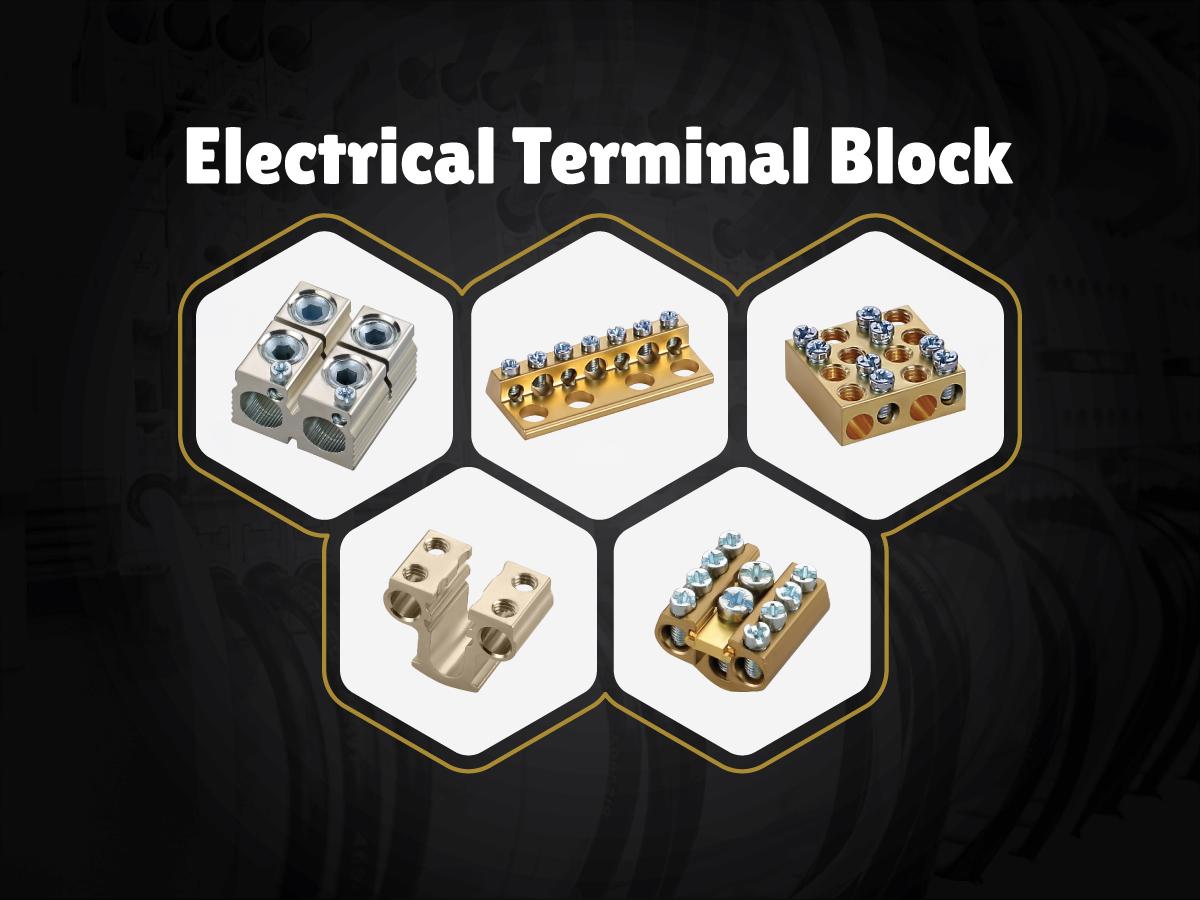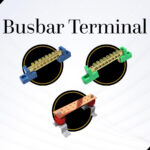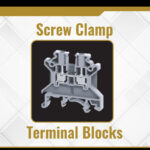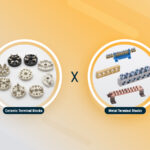How are Electrical terminal blocks used in Heavy-duty Applications?

A wide array of electrical terminal blocks is used in industrial applications to take electrical power, sensor signals, and power control into automation components. For general industrial applications, there are many options but when it comes to harsh-environment and heavy-duty industrial applications, heavy-duty electrical terminal block must require resisting crushing from impact loads or being pulled apart.
Electrical terminal blocks are points where two or more wires can be connected electrically. They are generally used to bring wires together without solder or other interconnects. It is a simple, useful, cost-effective, and crucial electrical component for every industrial electrical application. It is also known as screw terminals as well in some industrial sectors because screws are used to secure termination wire to the terminal block. According to various Industrial Dysfunction fields or applications, it is also referred to as a terminal link, terminal bar, and barrier bar.
Electrical terminal blocks are rugged connectors that play a critical role in industries such as manufacturing, automation, marine, aerospace, transportation, mining, and construction, where electrical systems must withstand harsh conditions and heavy loads. In this article, we will explore how electrical terminal blocks are used in heavy-duty applications and their significance in ensuring reliable power connections and safety.
Heavy-Duty Electrical Terminal Blocks for All Your Industrial Needs:
Power Distribution and Control:
One of the primary functions of electrical terminal blocks in heavy-duty applications is to distribute and control electrical power. They serve as a central connection point for incoming and outgoing power supply lines, allowing the efficient distribution of electricity to various equipment, machinery, and systems within an industrial setting.
Electrical terminal blocks are used to connect power sources, such as transformers or generators, to the main distribution panel. From there, power can be further distributed to different machines, motors, lighting systems, and other electrical loads through branch terminal blocks. This organized and modular approach to power distribution simplifies installation, maintenance, and troubleshooting processes, making it ideal for complex heavy-duty systems.
Motor Control and Starters:
In heavy-duty applications, electric motors are widely used to power various equipment and machinery. Electrical terminal blocks play a crucial role in securely connect motor leads to motor starters or motor control centers, also preventing overheating and potential damage.
Motor starters are devices that regulate the starting, stopping, and speed control of electric motors, and terminal blocks provide the necessary connections for these components. In this context, heavy-duty terminal blocks are essential for handling the high current and voltage demands associated with industrial motors.
Control Panels and Cabinets:
Control panels and cabinets are central hubs in heavy-duty applications, housing various electrical components, such as relays, circuit breakers, fuses, and contactors. Electrical terminal blocks are extensively used within these control panels to organize and interconnect the different components effectively.
The modular design of terminal block connectors allows engineers to create structured wiring layouts, reducing clutter and facilitating ease of maintenance. Color-coded and labelled terminal block connectors simplify wiring and troubleshooting procedures, minimizing downtime and maximizing operational efficiency.
Field Wiring and Sensor Connections:
In heavy-duty industries, sensors are used to monitor and control various processes and equipment. Electrical terminal blocks are crucial for establishing connections between these sensors and the control system. This ensures that critical data from sensors, such as temperature, pressure, or flow, can be accurately transmitted to the control panel or automation system for real-time monitoring and decision-making.
Moreover, heavy-duty terminal block connectors used for field wiring are designed to withstand extreme environmental conditions, making them suitable for outdoor installations in challenging industrial environments.
Advantages of electrical terminal blocks for heavy-duty industrial application:
- Quick & Multi connection: It provides a time-saving connection process and large wiring capacity, which can adapt to various wiring requirements.
- Easy installation: Not required any special tool for connection. It offers easy installation with a simple screwdriver and wire stripper.
- Wiring Safety: They are available with an insulated cover to provide finger-safe connections to prevent electrical shock.
- Electrical Safety: They increase the safety of electrical wiring by grounding, isolating, and protecting the other components. In addition to electrical terminal blocks, test points can also be provided, which adds a level of safety.
- Conductivity: Heavy-duty electrical terminal block made of high conductive, highly malleable metal such as copper, brass, aluminium, etc to provide interrupted and quality termination.
- Corrosion-free: Made up of high-quality metal terminal block connector resist corrosion and withstand environmental conditions.
- Versatility: There are many types and sizes of electrical terminal blocks available, so they can be used for many different things. Additionally, they can be customized to meet specific requirements.
- Easy Maintenance: The electrical terminal blocks are designed to be easily maintained and repaired. No soldering or other specialized tools are required to remove and replace wires.
Electrical terminal blocks serve mainly for two purposes: they are used to connect different circuits together and to provide an electrical ground for the circuit. According to different industrial applications, there are types of heavy-duty electrical terminal block connectors available like barrier terminal blocks, DIN-Rail terminal blocks, stud terminal blocks, etc. This component ensures efficient power distribution, control, and safety for heavy-duty applications. Their rugged design, high current and voltage ratings, secure connections, and comprehensive features make them suitable for demanding industrial environments. When installing terminal blocks in heavy-duty applications, follow industry standards and guidelines to ensure performance and avoid electrical accidents.
When it comes to heavy-duty application terminal block connector, custom manufacturing would be a great choice. Contact us to get a free quick electrical terminal block quote for your heavy-duty application or special requirements.



